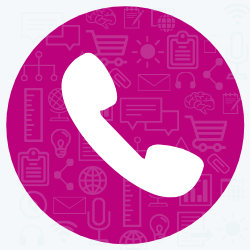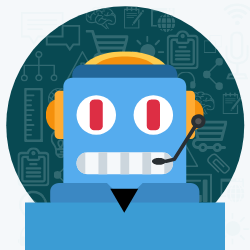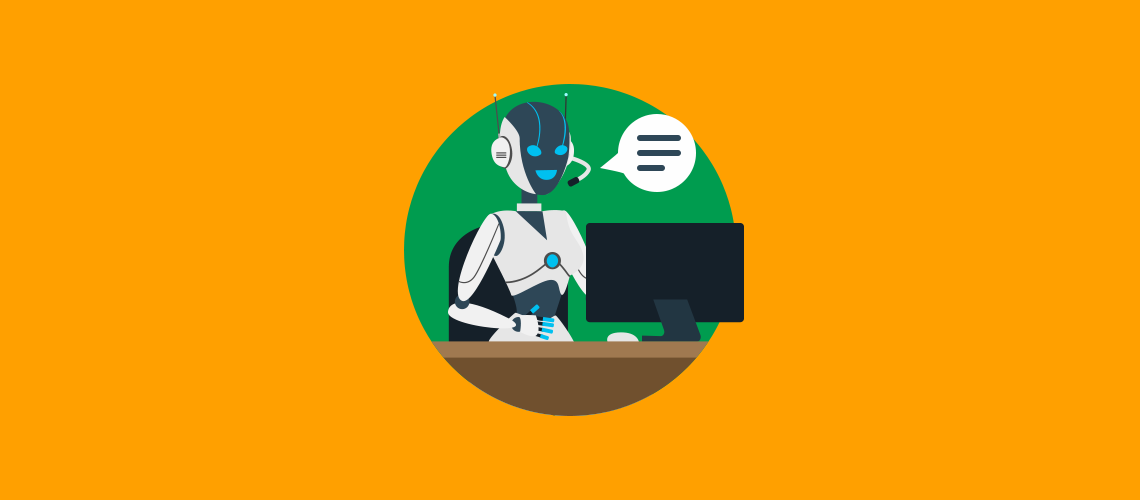- Call Answering Services 101
- How Call Answering Services are Used Today
- The Future of Call Answering Service
Call Answering Services 101

Call answering service is a common feature of virtual office plans. The virtual office was first introduced in 1973 as an “off-site tenant program” by Attorney Office Management (also known as Fegen Law Suites). Yet, call answering services have been around even longer than the virtual office. When Paul Fegen founded Fegen Lawsuites in 1966, one of his core offerings was telephone answering.
Telephone answering services are the origin and founding base of today’s technology enabled call answering services.
For those of you unfamiliar with call answering, it’s a service commonly offered by virtual office providers that handles and takes business calls for clients. Call answering services encompass offerings like live receptionist services, local or toll-free numbers, and VoIP phone systems. The value proposition of this service is that it aids professionals in getting through and handling business calls seamlessly and professionally, which helps improve and maintain their business image.
In other words, call answering services are an outsourced service that takes calls on your or your company’s behalf. This service helps reduce day to day interruptions, therefore improving productivity and allowing clients to focus on their core business.
How Call Answering Services are Used Today

As you can well imagine, new technologies have revolutionized call answering services, though the core idea remains the same: for calls to be screened, taken, and handled, and for messages to be delivered to the right person. Additionally, most call answering services can also take orders, schedule appointments, provide basic company/product/service information, and provide basic customer support.
Modern technology has created different types of call answering services.
Automated answering services
This is the one that airlines, banks, and telecommunication providers use, among many others. When a person makes a call, they can press different numbers for different options. Sometimes this service ends up with individuals speaking with a live agent and sometimes the query can be solved automatically (like payment, account information, etc.).
VoIP System
Voice over Internet Protocol enables individuals to transmit voice and multimedia content over IP networks.This service is available through VoIP phones and softphone applications (which can be installed on desktop or mobile devices, like Google Hangouts). Basically, what VoIP phone systems enable is for people to communicate over the internet, which can represent cost savings for companies. VoIP services also provide clients with the option to set up a local number, which is useful for companies with offices or presence in different countries or regions. VoIP messages are typically delivered in voice and text format.
Live Answering Services
Live answering services allow companies and individuals to personalize the way callers are greeted and the way they interact with their company. Live receptionists are able to take messages, forward urgent calls, book appointments, take and process orders, and take care of customer support queries. Some live answering services can be hired 24/7 and offer a local number clients can call to. Live receptionists can also fulfill secretarial tasks like maintaining your schedule and many of them are bilingual. Alliance Virtual Offices live receptionists screen calls and handle each one according to the client’s instructions and they work in small teams in order to get to know you, your business, and your callers.
All of the above call answering services are used by companies to improve customer service, reduce overhead costs, and increase productivity. By taking care of day to day tasks, call answering allows companies to better allocate their time and human resources on their core business needs.
The Future of Call Answering Services

New technological developments are already disrupting the call answering business. Artificial intelligence, automation, IoT, big data, and machine learning are already having an impact in this industry.
Many individuals have often complained about speaking with a machine when they call a company’s customer service (again think about airlines, banks, telecommunications companies, etc.). What new technologies are enabling is for these machines to sound human-like, making it impossible (or at least challenging) for people to realize they are talking with a machine.
Watch this video to see what artificial intelligence powered call answering is capable of.
Pretty amazing stuff, isn’t it?
But that’s not all future call answering services will be capable of. By combining the above technologies, this type of services will be able to integrate with other platforms, collect and organize data, better screen calls, send live messages via collaboration apps (like Slack), and detect whether the caller is a new or previous caller (returning callers can be greeted by name and the interaction can be automatically personalized based on previous queries).
These technologies can also help companies in establishing if the call was handled correctly, analyze the tone of the caller and the potential consequences of it (it was a happy caller that will remain a loyal customer, it was an angry or frustrated one, etc.). Furthermore, since these machines or bots, if you will, will be connected to your entire business, they will have immediate access to information that can help them better resolve caller issues or queries.
Take for example Google’s Dialogflow Phone Gateway. Though the product is still in beta, is has promising personal and professional applications. Users will have access to a chatbot that can also make and handle human-sounding calls, as well as access to Google’s speech recognition, speech synthesis, natural language understanding, and automated orchestration systems. The Phone Gateway product can be connected with other Dialogflow offerings like Knowledge Connectors, Automatic Spelling Correction, and Sentiment Analysis.
Call Answering For Personal Use
As the video linked above showed, AI-powered call answering services have personal and professional uses. For personal use, individuals can use the service to make different kinds of appointments and reservations and it can even be used to take care of reminders. If you’re traveling or enjoy quiet weekends, the service can come in quite handy if you’re unable to take calls and messages. The service can also screen calls, which is especially useful if you tend to receive a significant amount of telemarketing or automated calls.
Call Answering For Business Use
For businesses, the applications are endless. They can fulfill basic secretarial or receptionist services and they can empower customer service and sales teams. AI-powered call answering services can provide businesses with valuable data that can help improve their sales, marketing, and customer service strategies, they can help manage an agenda/schedule, and provide real-time data of customers or clients. The technology can help predict customer behavior based on tone, pitch, and tone of words; and it is a powerful tool that can also improve the performance and insights of live receptionists.
Conclusion
Technology is the founding base of call answering services and as technology evolves, so does the service and its capabilities. Though artificial intelligence has already made a splash on this particular virtual office service, it’s not yet mainstream and widely adopted. Nonetheless, its capabilities are promising and they could improve a company’s operations on various fronts.


